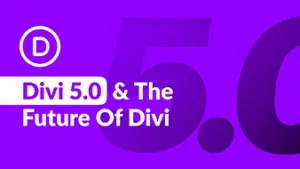I am using WordPress with the Divi theme,
There is this code:
function et_divi_fonts_url() {
$fonts_url = '';
/* Translators: If there are characters in your language that are not
* supported by Open Sans, translate this to 'off'. Do not translate
* into your own language.
*/
$open_sans = _x( 'on', 'Open Sans font: on or off', 'Divi' );
if ( 'off' !== $open_sans ) {
$font_families = array();
if ( 'off' !== $open_sans )
$font_families[] = 'Open+Sans:300italic,400italic,700italic,800italic,400,300,700,800';
$protocol = is_ssl() ? 'https' : 'http';
$query_args = array(
'family' => implode( '%7C', $font_families ),
'subset' => 'latin,latin-ext',
);
$fonts_url = add_query_arg( $query_args, "$protocol://fonts.googleapis.com/css" );
}
return $fonts_url;
}
That generates this output:
<link rel='stylesheet' id='tp-open-sans-css' href='http://fonts.googleapis.com/css?family=Open+Sans%3A300%2C400%2C600%2C700%2C800&ver=4.2.4' type='text/css' media='all' />
<link rel='stylesheet' id='tp-raleway-css' href='http://fonts.googleapis.com/css?family=Raleway%3A100%2C200%2C300%2C400%2C500%2C600%2C700%2C800%2C900&ver=4.2.4' type='text/css' media='all' />
<link rel='stylesheet' id='tp-droid-serif-css' href='http://fonts.googleapis.com/css?family=Droid+Serif%3A400%2C700&ver=4.2.4' type='text/css' media='all' />
<link rel='stylesheet' id='et_monarch-open-sans-css' href='http://fonts.googleapis.com/css?family=Open+Sans:400,700' type='text/css' media='all' />
<link rel='stylesheet' id='divi-fonts-css' href='http://fonts.googleapis.com/css?family=Open+Sans:300italic,400italic,700italic,800italic,400,300,700,800&subset=latin,latin-ext' type='text/css' media='all' />
I am wondering if there a psemi simple way to combine all those resources in to a single request?

 Question posted in
Question posted in 

3
Answers
Taken from https://developers.google.com/fonts/docs/getting_started?hl=en:
To request multiple font families, separate the names with a pipe character (|).
For example, to request the fonts Tangerine, Inconsolata, and Droid Sans:
https://fonts.googleapis.com/css?family=Tangerine|Inconsolata|Droid+SansOne solution is this Google Font Optimization tool.
You can insert multiple Fonts URLs in this tool and get a single clean URL in return.
Another solution is Easy Fonts, but it combines all the fonts in one URL instead of allowing you to choose which fonts to combine:
I used
https://developers.google.com/fonts/docs/css2
Example
display=swap
https://developers.google.com/web/updates/2016/02/font-display